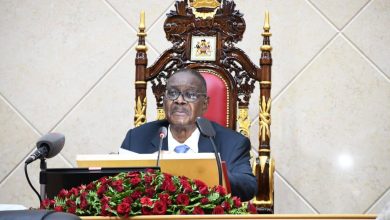Can the real Monetary Policy Committee stand up!
What started as my promising weekend was dampened by a story with the headline ‘Ecama urges export drive’ published in Business News section of the Weekend Nation edition of August 2 2025.
In the article, the Economics Association of Malawi (Ecama) called for urgent action to achieve fiscal discipline, export-led recovery and reform of foreign exchange markets to avert a deeper balance-of-payments crisis.
Ecama’s position as espoused by its president Bertha Bangara-Chikadza came on the back of an International Monetary Fund (IMF) statement showing that Malawi’s net international reserves (NIR) were projected to fall to negative $2.03 billion (about (K3.55 trillion or 18.9 percent of gross domestic product (GDP) by the end of this year.
In the statement, IMF projected that Malawi’s net international reserves or what the Reserve Bank of Malawi (RBM) can actually use after deducting liabilities will deteriorate from –$1.02 billion in 2023 to –$2.03 billion in 2025.
On the other hand, gross official reserves are expected to fall to just $118 million during the same period, covering barely two weeks of imports. Internationally, the recommended minimum of import cover is at least three months.
Malawi is burdened with external debt set to reach an equivalent of 31.6 percent of GDP by the end of the year with Bloomberg reporting that part of that total includes almost $500 million owed to Africa Export and Import Bank (Afreximbank) and about $400 million with the Trade and Development Bank.
To restore macroeconomic stability, Ecama said Malawi will require a combination of monetary tightening to curb speculation and long-term investment in export growth, cautioning that the widening trade gap is fuelling forex shortages, driving transactions underground and worsening inflationary pressures.
Days prior to publication of the story, the Monetary Policy Committee (MPC) maintained the policy rate at 26 percent in a move some economists described as a ‘cautious’ approach that takes into account the existing inflation risk, especially on rising maize prices.
Between April and June this year, inflation rate has dropped from 29.2 percent to 27.1 percent, but then a looming maize deficit likely to lead to rising prices will soon exert further inflationary pressure; hence, the cautious approach.
Essentially, Malawi is in a Catch 22 situation where the tight monetary policy stance potentially stands to restrict private sector growth.
To strike a balance, there will be need to match with a tight fiscal policy anchored by fiscal discipline and reduced domestic borrowing.
Ideally, the MPC of the RBM is the custodian of the monetary policy which seeks to achieve stability in the economy using a wide range of instruments.
The monetary policy is formulated and implemented by the RBM with focus on achieving and maintaining stability in the general level of prices, inflation rate.
Inflation is proving difficult to tame as it is a “moving object” influenced by various factors and in Malawi, a predominantly importing and consuming economy, the situation is further complicated by a thriving parallel market for foreign exchange that appears to be calling the shots.
Parallel market rates are influencing critical decisions.
In February, barely a month in office, RBM Governor MacDonald Mafuta-Mwale said the central bank had finalised the process of formulating measures aimed at crushing the parallel market foreign exchange supply as a key price stabilisation strategy.
However, to date, the parallel market appears to be still flourishing and in total control. I feel that this gives an impression that in reality it is not the MPC at RBM that is calling the shots, but one that is kind of invisible.
By nurturing the parallel market, as it were, authorities have essentially “devalued” the currency, making the ‘parallel MPC’ ruling this country as most importers justify rising prices by claiming to source forex from the ‘black market’.
There are several other things worsening the situation, including maintaining of artificial fuel pump prices and dwindling exports as companies have no incentives to do so given that the proceeds will be based on the official rate yet they will pay for inputs at parallel market rates.
Next is the impact of the withdrawal of $400 million by the United States Agency for International Development, suspension of the $350 million Millennium Challenge Corporation compact and uncertainty of other foreign aid commitments. The situation doesn’t look promising.
In the final analysis, having tried every trick in the book to get things right to no avail, perhaps it would only be fair to ask the real MPC from the parallel market to raise hands and stand up, we cannot surely go on like this!



